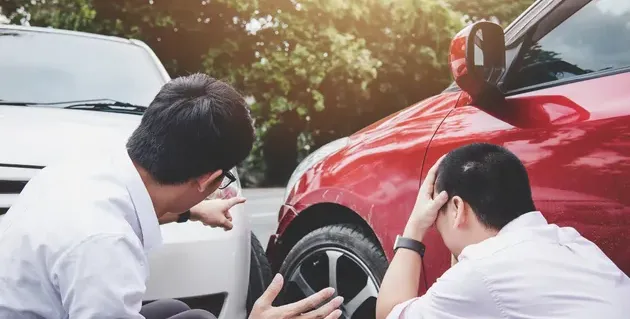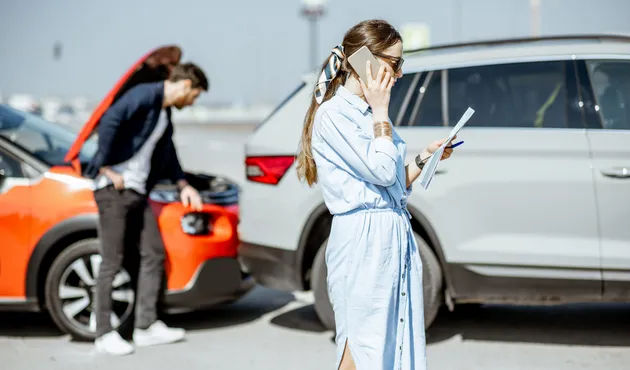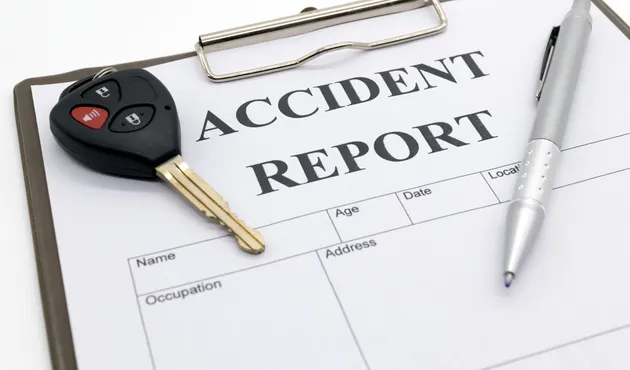
Car Accident Scams - The Nightmare Of Insurers And Innocent Drivers
Car crash scams are on the rise, and they often target unsuspecting victims. Unfortunately, these types of frauds are very dangerous and often result in real injuries.
If you're involved in a car accident, it's important to be aware of the possibility that it may be a scam. These schemes can be difficult to spot, but there are some signs that you can look out for. If you're involved in a car accident, be sure to watch out the red flags we described in the article.
The most common car accident scams

There are many different types of car accident scams, but some are more common than others.
The most common is known as "crash for cash" scam - when someone will deliberately cause an accident and then claim insurance money from the other driver. This can take many forms:
- Ghost accidents - This is when someone claims that they were hit by a car that doesn't exist. They may say that they saw the car coming at them, but when they looked again, it was gone. This is a difficult scam to prove. Fraudsters make claims for damage to a car that was never in an accident, hoping they won't have to provide any evidence;
- "Staged accidents" - this is when two or more people plan an accident in advance. They may deliberately brake hard in front of the other driver, or even collide with them on purpose. This type of scam is usually easy to spot, because the drivers will often have injuries that are not consistent with the accident;
- "Fake personal injury" scam. This is when someone fakes an injury in order to collect insurance money. They may exaggerate their symptoms, or even fake an injury altogether. This type of scam can be difficult to prove, because it requires medical evidence.
Another types of car accident fraud include:
- Car insurance scams - if you have been involved in a road traffic accident, you may later receive phone calls from people pretending to be insurance companies, civil servants, companies promising you compensation. Car insurance fraud can also take another form - the policy holder gives false information relating to the accident in order to maximise compensation. Insurance industry can also become a victim of fraud.
- The other driver tries to get you to sign a document or make a statement admitting fault. This type of scam can also involve the other driver asking for money in order to not report the accident to insurance or the police;
- Someone offers to help you fix your car after an accident. They may offer to do this for free, but they will then ask for money once the work is done;
- Someone appears out of the blue after an accident and is too eager to inform you about a fantastic doctor, body shop, or lawyer he just so happens to know. Alternatively, he gets involved in conversations with police officers claiming that he witnessed the entire thing and that it was your fault;
- Someone offers to give you a free ride home after an accident. After accepting it, they will then demand money for their services.
If you're ever involved in a car accident, be sure to get all the evidence you can to support your version of events. If someone tries to scam you, don't be afraid to call the police.
How scammers work?
Every victim has a story. One of them is John, a delivery driver from Swindon. He was on his way to work one morning when he was involved in a car accident. The other driver claimed that John had crashed into him, but John knew that he hadn't. He had seen the other driver coming towards him in his rear-view mirror and had moved over to the left to avoid him.
The other driver then tried to scam John by claiming that he had been injured in the accident and demanding money from him. John refused to pay and called the police. The police investigated the accident and found that it wasn't John's fault.
How to spot these scams?

Be vigilant for these behaviours:
1. If the other driver seems overly eager to settle the matter without involving the police or insurance companies. It is better not to do this in order not to lose insurance premiums and have other legal problems.
2. When the other driver wants you to pay him in cash rather than going through official channels. If you have a suspicion that someone is trying to cheat you, do not make any concessions.
3. Cold calls after a car accident. Scammers may claim to be insurance brokers, offering you new and better insurance. You may also get calls from a companies asking about a car accident you've supposedly had, claiming you may be entitled to compensation.
4. If someone doesn't want to give you their contact, personal details and insurance details, won't let you take photos or write down a statement - a red light should go on.
Where to report fraud?
If you have any suspicion that the other driver is trying to scam you, it is best to call the police or your insurance company right away. Do not sign any documents or make any statements until you have spoken with them first.

When it comes to car accidents, unfortunately, there are always people looking to take advantage of the situation. These scams can range from something as simple as the other driver asking for money in order to not report the accident, to more complex schemes like someone offering free repairs and then billing you once the work is done.
The most important thing to do if you are in an accident is to stay calm and call the police. This will ensure that a report is filed and that any evidence of the accident is properly documented. Do not try to settle the matter with the other driver on your own. Instead, let your insurance company handle the claim.
Under stress, we may overlook certain signals and not be able to make the right decision. This is how innocent motorist is taken advantage of.
Have you ever been in a car accident? Were you the victim of crash for cash scams? Share your story in the comments below.